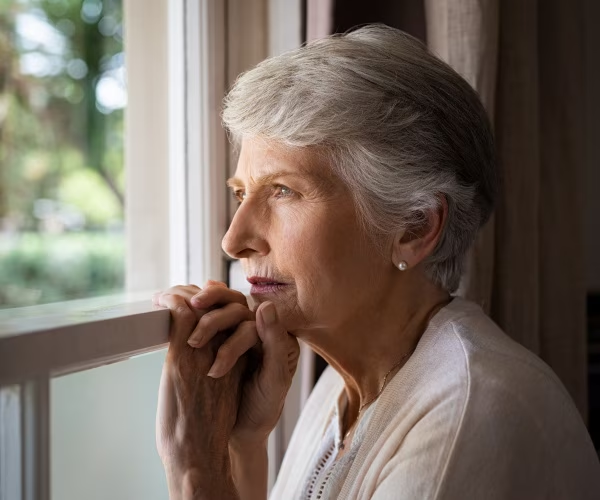40 Percent of Adults Go Days Without Interaction

Dreamstime
From Newsmax
With all our devices and social media making it easier to connect, you’d think that loneliness is a thing of the past. But a new British poll of 2,000 adults found that almost half — 40% — can go days without a face-to-face conversation with another person.
According to Study Finds, 28% of those surveyed by OnePoll in a study that was commissioned by Zumba, said they felt lonely even at social events and a quarter of them reported feeling isolated at their workplace. This phenomenon called being “lonely in a crowd” affected 60% of young adults and 38% of women versus 30% of men.
Experts say that part of this unsettling trend is that people are reluctant to talk about their feelings of loneliness. Keeping emotions buried takes a toll on your health and the study found that loneliness negatively affects confidence, anxiety levels, and sleep for many people. Two in five said their sleep suffered when they felt lonely and 29% said they felt less attractive. Three in 10 said that loneliness affected their diet.
A recent study by the Mayo Clinic revealed that social isolation is linked to a biological age gap and higher mortality rate. Researchers found that socially isolated people are more likely to show signs of being biologically older than their age and more likely to die from a variety of causes.
Relationship therapist Anjula Mutanda who partnered with Zumba for the new British study said that feelings of loneliness can be alleviated through group activity and fitness classes.
“Human beings are by our very nature social beings and psychological research asserts that we need to belong, to relate to each other and feel connected to other people — this is how we survive and thrive,” she said.
Mutanda offers these tips for alleviating loneliness:
• Be aware of unhelpful habits that you may have formed whenever you feel lonely. For example, write down the times you withdrew from people while you really wanted to reach out.
• When you feel a downward emotional spiral coming on, do something different that can help you shift how you feel. You can text a friend or go for a walk to help you start thinking more positively.
• Disrupt those negative automatic thoughts (NATs) that prevent you from reconnecting with things that you love, like taking dance classes because you’re afraid people will judge you negatively.
• Engage in new activities. This helps create a positive mindset and new habits, says Study Finds. Try engaging with your colleagues or find a fitness class or film club to join.
• If you feel stuck and are struggling with fear that is stopping you from attempting something new, talk to your doctor and get professional support.
“Experiencing loneliness can come in different forms and is uniquely felt by each of us,” said Mutanda. She says that loneliness can affect confidence and leave sufferers feeling too embarrassed to share feelings. This can lead to a “downward spiral of ‘silent suffering’ and can really take a toll on your well-being,” she added.
The good news is that beginning by taking small steps, and/or seeking help from family, friends or professionals, can help you on a path of connection and alleviate feelings of loneliness.
© 2024 NewsmaxHealth. All rights reserved.
For more on this story go to: NEWSMAX





